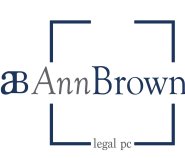Whether you have recently been offered a job, given a raise, or are analyzing your wages compared to others, you may be wondering what a fair wage is for your position and the work you do. A number of factors decide what makes pay fair – including the work done, experience levels, etc. Certain legal criteria govern what employers must pay their employees.
Federal and State Standards
The federal government sets a minimum wage requirement, with certain exceptions for tipped employees and other types of work. The federal government also maintains provisions for overtime pay requirements for certain employees and situations. In addition, each state may set its own minimum wage and overtime laws.
Wage Theft
If your employer has refused to pay you for all the wages you’ve earned, this is called wage theft. This can occur when an employer does not pay you for activities and time that are integral to your work. These activities may include trainings, travel, overtime, etc. The Iowa Wage Payment Collection Act allows employees to collect back pay owed to them, and does not allow an employer to withhold such pay if they have a claim against that employee.
Fair Pay Among Employees
In Iowa, it is illegal for an employer to pay an employee less based on gender, age, religion, disability, sexual orientation or other specific factors. Many employers may not be transparent in sharing what other employees are making at your job. However, if you learn that other employees doing the same work you are doing, with commensurate experience, are being paid more, you may have a case and should contact a workplace discrimination lawyer.
Gender Pay Gap
A particularly common issue in fair pay is gender. The federal Fair Labor Standards Act prohibits discrimination in pay based on gender. Iowa employment law includes Iowa’s Equal Pay Act of 2009, which requires that women be paid the same as men, doing the same work. However, here in Iowa, women are still paid only 77 cents for every dollar a man is paid. While this is illegal, it often goes unnoticed or accepted, due to lack of transparency.
Benefits and Accruals
When considering your wages, don’t stop at the base pay, whether hourly or salary. Factor in your benefits, health insurance, retirement accounts, leave and sick time, stock options, and other accruals. If you are unsure whether you are being offered fair compensation and benefits, you should contact an attorney experienced with Iowa employment law.
Workplace discrimination lawyers are familiar with both employment law and recent cases. They can spot unfair wage practices and help you receive the compensation your work deserves. If you feel you have been paid unfairly, please contact us at (319) 826-2250 or fill out our contact form.



